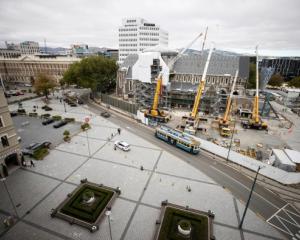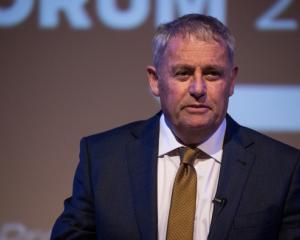
On election night, Jacinda Ardern said, “To those amongst you who may not have supported Labour before… I say thank you. We will not take your support for granted. And I can promise you, we will be a party that governs for every New Zealander.”
I wonder if Jacinda Ardern understands that governing for every New Zealander means setting aside policies that are driven by extremism in favour of those that represent the public interest?
Two pressing issues come to mind that are in this ‘extremist’ category. The first is a demand by Maori separatists for the Prime Minister to abolish a pillar of local democracy, petition rights. And the second is Labour’s plan to implement their impossible climate goal of “100% renewable electricity generation by 2030”.
Firstly, calls on the Government to abolish local government petition rights are increasing as activists attempt to prevent community group around the country from vetoing council decisions to introduce Maori wards.
Whenever Maori wards are introduced the voting system has to be changed to include the Maori electoral roll. That’s why, when Helen Clark’s Labour Government introduced the Maori ward option into the Local Electoral Act in 2001, the constitutional safeguard of petition rights were included to protect communities from attempts by councils to change the electoral system for their own advantage.
This means that if councils decide to alter the voting system – by changing between First Past the Post (FPP) voting and Single Transferable Vote (STV), or by introducing Maori wards and the Maori electoral roll – without first consulting with their community, the community has the power to overturn their decision if 5 percent of electors support a petition to hold a binding referendum.
Andrew Judd, the former mayor of New Plymouth, is driving the campaign to abolish Maori ward petition rights. He was elected Mayor in 2013, and during his term of office not only sought to introduce Maori wards without consulting his community, but to push for half of all council representatives to be Maori: “The reasonable interpretation of the Treaty is that you would have fifty-fifty representation around the table. We should be incorporating the Maori perspective around council tables, and ultimately that would mean up to half the representation each.”
While his council voted for Maori wards, 83 percent of the New Plymouth community opposed them in a referendum. The mayor responded by calling his community ‘racists’. But Maori leaders embraced him, encouraging his advocacy for “50-50 representation between Maori and non-Maori on local authorities to reflect the Treaty of Waitangi partnership”.
Andrew Judd is now travelling the country campaigning for a law change to remove local government petition rights. He also wants to stop the petitions that are currently underway. If he succeeds, this will remove the only safeguard communities have against councils being increasingly radicalised.
The Northern Advocate reported that Andrew Judd is calling on the Prime Minister to take immediate action to abolish local government petition rights: “Legislation change around removing polling over councils’ Maori wards voting needs to be the first cab off the rank at the first sitting of our new Parliament… Changes to the Local Electoral Act need to be made urgently and in a way that makes any Northland polling results null and void.”
In response, a spokesperson for the Prime Minister said a law change to abolish petition rights is under consideration. If it goes ahead, it would be in place before the next local government elections in 2022.
As a result, Andrew Judd is now pressuring the Local Government Minister Nanaia Mahuta to urgently intervene to stop the Maori ward petitions that are presently underway, including those in Whangarei, Kaipara and in the Northland Regional Council area.
A spokesperson for the Minister said work was being done on how to deal with the issue in the short term and an announcement would be made within three weeks.
Maori ward supporters are calling for a polling moratorium to be imposed to prevent communities from overturning their council’s decisions.
Unbelievably, this includes the Northland Regional Council, which is writing to the Minister, not only to support the abolition of petition rights, but to request “a moratorium or the like on the ability to demand a poll”.
If you, or anyone you know, lives in the Northland region and is eligible to support the Northland Regional Council, Whangarei District Council or Kaipara District Council petitions for referenda on the Maori wards, please visit the Democracy Northland website at democracynorthland.co.nz for forms and full details. Please share this information as far and wide as you can!
The reality is that New Zealanders do not want their councils divided by race. Communities want us united by the things we have in common, not divided by our differences. That’s why petition rights should stay.
However, with Local Government New Zealand having signed a Memorandum of Understanding with iwi leaders back in 2015, to work in secret on advancing matters of strategic significance to iwi, including “local democratic representation and decision-making”, it is clear that the pressure on local councils to introduce Maori wards is not going to go away – it will only get stronger.
That’s why a law change is needed – not to remove petition rights, but to remove Maori wards altogether. It’s what National MP Tony Ryall attempted to do in 2006 through a Private Members Bill, the Local Electoral (Repeal of Race-Based Representation) Amendment Bill. National and ACT should be picking up where Tony Ryall left off – supporting an end to race based division within local government.
If Jacinda Ardern is to govern for all New Zealanders, she must not only reject Andrew Judd’s call for removing petition rights, but she should remove Maori wards altogether.
If you feel strongly about this issue, why not share your views with MPs – all of their email addresses can be found HERE.
The second issue of concern is Labour’s extremist plan to generate all of New Zealand’s electricity supplies from renewable sources within ten years – not only to progress our commitment to the United Nations Paris Agreement on Climate Change, but also to satisfy Goal 13 of the United Nations Agenda 2030 – which Jacinda Ardern has embraced: “…my Government is doing something not many other countries have tried. We have incorporated the principles of the 2030 Agenda into our domestic policy-making in a way that we hope will drive system-level actions”.
But achieving 100 percent renewable electricity generation by 2030 is totally unrealistic.
The Minister of Energy Megan Woods explained as much last year, when their goal was to achieve that objective by 2035: “We are confident we can get to our 100% renewable ambition, and are confident new technologies will be developed to help us get there affordably, but we also want to signal we will be pragmatic about this goal and we won’t die in a ditch over the last couple of percent if it places unreasonable costs on households and puts security of supply at risk… That is why we have given ourselves a 16-year lead in to achieve this ambition.”
Their plan to press ahead, five years early and without the benefit of technological development, will undoubtedly lead to failure – and a vast waste of taxpayers’ money.
Even the Government’s Interim Committee on Climate Change warned against such policy extremism, explaining that while around 82 percent of our electricity supplies are currently generated from renewable sources – hydro, wind, solar and geothermal – and that New Zealand is on track to reach 93 percent renewable electricity under a business as usual model, it is not feasible under normal circumstances to take it further.
The problem arises because electricity systems need an emergency generation capacity that can cope with supply shortages and ensure the power stays on when the wind doesn’t blow, the sun doesn’t shine, and the lakes are low. At the present time, the Huntley Power Station fulfils that role, sitting on standby, ready for use in emergencies.
If Huntley is mothballed, there is no reasonable alternative.
The Government is talking about pumped hydro storage or green hydrogen production, but both are highly experimental.
Pumped hydro in particular, has been described as “the stuff of dreams”.
The scheme would require Lake Onslow in Central Otago to be increased in size from 8 square kilometres to 50sqkm, a 24 km long tunnel would then need to be drilled through to the Lake Roxburgh power station. Stored water could then flow from Lake Onslow to Lake Roxburgh generating electricity during power shortages, with water pumped back to Lake Onslow from surpluses in Lakes Roxburgh, Tekapo, and Pukaki, when power prices are low.
But estimates are that such a scheme could never be in service by 2030 – more like 2037: drilling the tunnel would take at least a year, consents two or more years, design and tendering another couple of years, with six years for construction, and three years to fill the lake.
And all of this – at a cost to the public of $4 billion to $5 billion – is to avoid using the Huntley Power Station once in a blue moon during an emergency!
It is sheer madness to put ideology ahead of common sense on such a scale, especially as the surplus electricity capacity would be generated at the bottom of the South Island, leading to major logistical problems transmitting it to the North Island where the greatest demand lies.
This week’s NZCPR Guest Commentator, energy expert Bryan Leyland, is highly critical of the 100 percent renewable electricity by 2030 plan, warning it would triple the cost of power:
“The Government’s mind-boggling announcement of its intent to eliminate carbon dioxide emissions from electricity generation directly contradicts its own official advisers and would increase residential power prices by 300%.
“The policy would shut down coal and gas-fired generation and geothermal generation would also bite the dust because it also gives off CO2. As a result, nearly 3000 MW of existing cheap and reliable generation would be abandoned. The resulting electricity shortfall would be exacerbated by the government’s policies on electric transport that could easily add 1000 MW to New Zealand electricity demand… Because of the way our electricity market works, residential power prices would be three times higher…
“The pumped storage option would be opposed by environmentalists and is not feasible… The solar power option would cover six times the urban area of Auckland with solar cells…
“The reality is that the government’s ambitions for emissions free power generation are technically, economically and environmentally fraught and would inevitably lead to skyrocketing prices and regular blackouts… New Zealand would soon become a third world country.”
The government has justified bringing forward their 100 percent renewable goal from 2035 to 2030, on the basis that the Covid-19 economic recovery “represents a once in a generation opportunity to reshape New Zealand’s energy system to be more renewable faster, affordable and secure”.
But as the environmentalist Michael Moore explained in his controversial film, Planet of the Humans, renewable energy is a scam. It is not clean and green, nor sustainable, but is more destructive than the energy sources it seeks to replace.
He showed how wind, solar and biofuel projects destroy landscapes and habitats, and he exposed the bogus claims about their benefits, showing how massive solar energy and wind farms decay over time, littering and polluting landscapes forever.
A reviewer describes the wind turbines: “Each one is comprised of nearly 5,000,000 pounds of concrete, steel, aluminium, copper, plastic, cobalt, rare earths, fiberglass and other materials. Every step in the mining, processing, manufacturing, transportation, installation, and maintenance process requires fossil fuels. It bears repeating: wind and sun are renewable and sustainable; harnessing them for energy to benefit mankind absolutely is not.”
Having investigated renewable energy Michael Moore says, “We’re basically being fed a lie”. He now believes we’d be “better off just burning fossil fuels in the first place,” than doing all of this.
Jacinda Ardern has claimed that climate change is her generation’s nuclear free moment. But if she is genuine about wanting to govern for all New Zealanders, she needs to put aside her UN-inspired activism, to avoid ruining our economy, because one day the renewable energy agenda will be exposed and discredited for the lies that it is.













